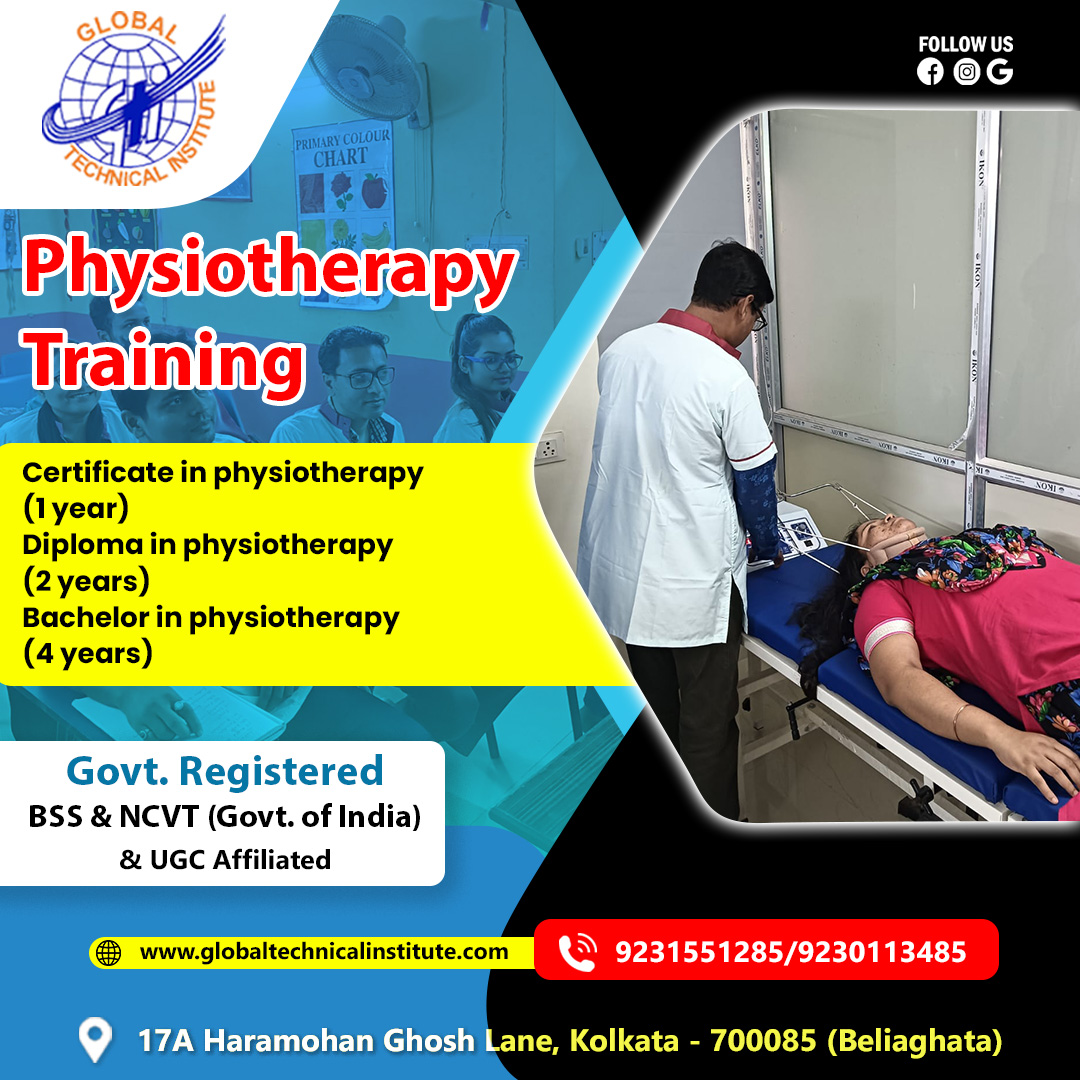Blog

Nursery Teacher Training Institute in Kolkata: Shaping the Future of Early Childhood Education
Introduction: The Importance of Nursery Teacher Training
Nursery education is vital in laying the foundation for a child’s future development. It is during the early years that children acquire essential skills, knowledge, and values. The effectiveness of nursery education depends largely on the competence and expertise of nursery teachers. To ensure high-quality education, it is crucial to have well-trained and qualified professionals in this field. This article explores the significance of nursery teacher training and highlights the role of a nursery teacher in shaping the future of early childhood education. nursery teachers training institute in Kolkata
Understanding the Role of a Nursery Teacher
A nursery teacher has a multifaceted role in a child’s learning journey. They act as facilitators, nurturers, and guides, providing a safe and supportive environment for young children to explore, learn, and grow. A nursery teacher is responsible for developing age-appropriate lesson plans, implementing creative teaching strategies, fostering social and emotional development, and cultivating a love for learning among their students.
Qualities and Skills Required for Nursery Teachers
Being a nursery teacher requires a unique set of qualities and skills. Patience, empathy, creativity, and adaptability are crucial traits that help teachers connect with young learners effectively. Strong communication skills, classroom management abilities, and a deep understanding of child psychology create a positive and engaging learning environment.
Choosing the Right Nursery Teacher Training Institute
Selecting the right nursery teacher training institute is essential for aspiring teachers. A reputable institute provides comprehensive training programs that cover various aspects of early childhood education. Prospective teachers should consider factors such as curriculum quality, experienced faculty, practical training opportunities, and accreditation.
Curriculum and Course Structure of a Nursery Teacher Training Program
A well-structured nursery teacher training program covers many subjects, including child development theories, educational psychology, curriculum planning, pedagogical approaches, and classroom management strategies. It equips teachers with the knowledge and skills necessary to create stimulating learning experiences for young children.
Practical Training and Classroom Experience
Practical training and classroom experience are integral to a nursery teacher training program. Trainees can observe experienced teachers, assist in classroom activities, and gradually take on teaching responsibilities under supervision. This hands-on experience enhances their teaching skills and prepares them for real-world classroom situations.
Educational Resources and Support for Nursery Teachers
Nursery teachers require access to various educational resources to enrich their teaching practices. Training institutes should provide teachers with a comprehensive collection of books, teaching aids, digital resources, and educational materials. Additionally, ongoing support and professional development opportunities ensure teachers stay updated with the latest educational trends and best practices.
The Impact of Technology on Nursery Education
Technology has revolutionized the field of education by offering innovative tools and resources for nursery education. In today’s digital age, nursery teachers can leverage technology to create interactive learning experiences that captivate young minds. Educational apps, interactive whiteboards, and online platforms provide opportunities for virtual field trips, multimedia presentations, and engaging learning activities. Integrating technology into nursery education enhances learning and prepares children for the digital world they will grow up in.
Creating a Stimulating Learning Environment for Young Children
A nurturing and stimulating learning environment is crucial for the overall development of young children. Nursery teachers play a vital role in creating an atmosphere encouraging exploration, curiosity, and active participation. Colorful and well-equipped classrooms, learning corners with age-appropriate materials, and engaging play areas provide a holistic learning experience. By incorporating sensory activities, storytelling sessions, music, and art, teachers can foster a love for learning and spark children’s creativity.
Teaching Strategies for Effective Early Childhood Education
Effective teaching strategies are essential for facilitating meaningful learning experiences in nursery education. Play-based learning, hands-on activities, and project-based approaches are popular methodologies nursery teachers use. These strategies allow children to actively participate in their learning process, develop problem-solving skills, and promote social interaction. By tailoring their teaching methods to suit individual learning styles, nursery teachers can ensure that every child receives personalized attention and support.
Assessments and Evaluations in Nursery Education
Assessment in nursery education focuses on observing and documenting children’s progress and development rather than traditional exams. Nursery teachers use various assessment tools such as checklists, portfolios, and anecdotal records to evaluate children’s cognitive, social, emotional, and physical growth. This information helps teachers identify strengths and areas for improvement and tailor their teaching strategies accordingly. Ongoing assessments provide valuable feedback to teachers and parents, enabling them to work together to support each child’s learning journey.
Developing Communication and Interpersonal Skills
Nursery education plays a significant role in developing children’s communication and interpersonal skills. Nursery teachers actively promote language development, encourage effective communication, and provide opportunities for children to engage in collaborative activities. Through storytelling, group discussions, role play, and peer interactions, children learn to express themselves, listen attentively, and build positive peer relationships.

Promoting Holistic Development in Young Learners
Nursery education aims to foster the holistic development of young learners. It focuses not only on academic skills but also on social, emotional, and physical development. Nursery teachers balance structured learning activities and free play, allowing children to explore their interests and develop their unique abilities. By promoting values such as empathy, respect, and tolerance, nursery education nurtures well-rounded individuals prepared for future academic success.
Addressing Challenges in Nursery Education
Nursery education is not without its challenges. Some common challenges include managing diverse learning needs, maintaining discipline in a lively classroom, and collaborating with parents. However, through effective communication, continuous professional development, and a supportive network of educators, nursery teachers can overcome these challenges and provide a nurturing and enriching learning environment for every child.
Conclusion
Nursery teacher training institutes in Kolkata play a vital role in preparing aspiring nursery teachers for their rewarding careers. By equipping them with the necessary knowledge, skills, and practical experience, these institutes contribute to the growth and development of early childhood education. With their passion, dedication, and expertise, Nursery teachers shape young learners’ futures and inspire a lifelong love for learning. As the demand for quality nursery education grows, investing in well-trained nursery teachers becomes imperative for building a strong educational foundation for children.
FAQs (Frequently Asked Questions)
What qualifications are required to become a nursery teacher?
A: While specific qualifications may vary, most nursery teacher training programs require a minimum high school diploma or equivalent educational background. Some institutes may also prefer candidates with a bachelor’s degree in early childhood education or a related field.
Are there job opportunities available for nursery teachers in Kolkata?
A: Yes, Kolkata offers a range of job opportunities for qualified nursery teachers. With the increasing focus on early childhood education, there is a growing demand for skilled professionals in nursery schools, preschools, and early learning centers across the city.
How long does a nursery teacher training program typically last?
A: The nursery teacher training programs’ duration can vary but generally range from six months to one year. Some institutes may offer shorter intensive courses, while others provide more comprehensive programs spanning over a year.
Can I pursue nursery teacher training while working or studying?
A: Many nursery teacher training institutes offer flexible schedules, including part-time or evening classes, to accommodate individuals currently working or studying. It is advisable to inquire about such options when researching different training institutes.
What qualities should I seek in a nursery teacher training institute?
A: When choosing a nursery teacher training institute, consider factors such as the reputation and accreditation of the institute, the expertise of the faculty, the availability of practical training opportunities, and the curriculum offered. It is also helpful to seek feedback from current or past students of the institute to gain insights into their experience.
In conclusion, nursery teacher training institutes in Kolkata play a crucial role in preparing educators who shape the future of early childhood education. By providing comprehensive training, practical experience, and support, these institutes contribute to the growth and development of skilled nursery teachers. Aspiring teachers should carefully choose the right institute to acquire the necessary knowledge and skills to provide high-quality education and nurture the young minds of Kolkata’s children.









